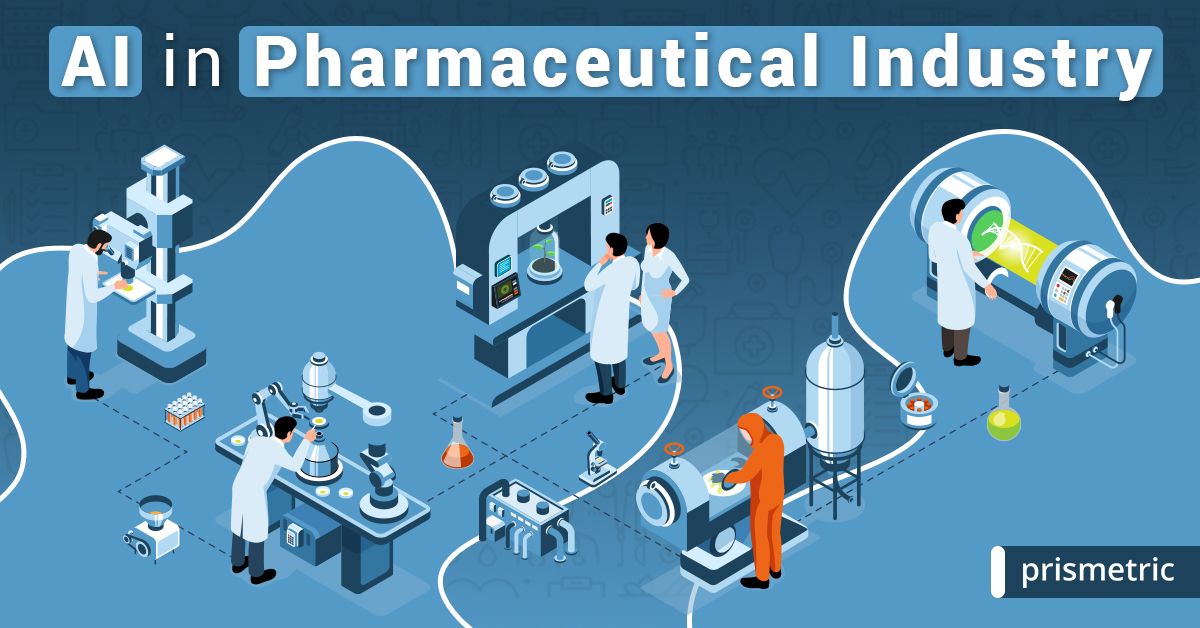The pharmaceutical industry has long relied on data-driven decision-making to advance drug discovery, improve clinical trials, and ensure regulatory compliance. With the advent of artificial intelligence (AI) and machine learning (ML), the ability to analyze vast amounts of data with speed and accuracy has transformed the landscape. AI and ML are not just tools for optimization; they have become integral components of pharmaceutical research, paving the way for more efficient drug development and personalized medicine.
Revolutionizing Drug Discovery and Development
The traditional drug discovery process is time-consuming, expensive, and fraught with uncertainty. AI and ML streamline this process by analyzing complex biological data, identifying potential drug candidates, and predicting their efficacy with remarkable precision. These technologies can process vast datasets from genomics, proteomics, and chemical libraries, enabling researchers to uncover hidden patterns and relationships that would be nearly impossible to detect using conventional methods.
One of the most significant breakthroughs in AI-driven drug discovery is the ability to simulate molecular interactions. Computational models powered by ML algorithms can predict how a drug molecule will interact with a target protein, significantly reducing the need for trial-and-error experimentation. This not only accelerates the drug discovery timeline but also minimizes costs and enhances the likelihood of successful clinical outcomes.
Optimizing Clinical Trials
Clinical trials are the cornerstone of drug development, but they are often plagued by inefficiencies, high attrition rates, and exorbitant costs. AI and ML are revolutionizing this phase by improving patient recruitment, monitoring, and data analysis. By leveraging predictive analytics, pharmaceutical companies can identify ideal patient populations based on genetic profiles, medical histories, and even lifestyle factors. This ensures that clinical trials are more targeted, reducing dropout rates and increasing the reliability of results.
Moreover, AI-powered monitoring tools enable real-time tracking of patient responses during clinical trials. Wearable devices and electronic health records (EHRs) provide continuous streams of data that AI algorithms analyze to detect early signs of adverse reactions or treatment inefficacy. This proactive approach allows researchers to make real-time adjustments, ensuring patient safety and optimizing trial outcomes.
Enhancing Manufacturing and Supply Chain Efficiency
Beyond drug development, AI and ML are making a significant impact on pharmaceutical manufacturing and supply chain management. The production of pharmaceuticals requires stringent quality control measures, as even minor deviations can compromise drug safety and efficacy. AI-driven predictive maintenance ensures that manufacturing equipment operates at peak efficiency, reducing downtime and minimizing the risk of production errors.
In supply chain management, AI algorithms analyze historical data and market trends to predict demand fluctuations, optimize inventory levels, and prevent shortages or surpluses. This level of precision reduces waste, lowers costs, and ensures that life-saving medications reach patients in a timely manner. Furthermore, AI-powered blockchain solutions enhance transparency and traceability, helping to combat counterfeit drugs and improve regulatory compliance.
Accelerating Personalized Medicine
One of the most promising applications of AI and ML in the pharmaceutical industry is personalized medicine. Traditional treatments often follow a one-size-fits-all approach, but AI enables the development of tailored therapies based on an individual’s genetic makeup, biomarkers, and environmental factors. Machine learning models analyze patient data to predict how specific individuals will respond to certain treatments, allowing for more effective and targeted therapies.
This shift toward precision medicine is particularly impactful in oncology, where AI-driven analysis of tumor genetics enables oncologists to design personalized treatment plans. By identifying the most effective drug combinations for each patient, AI minimizes trial-and-error approaches, reducing side effects and improving survival rates.
Ensuring Regulatory Compliance and Safety
Regulatory compliance is a critical aspect of the pharmaceutical industry, requiring meticulous documentation and adherence to stringent guidelines. AI-powered tools assist in automating compliance processes by analyzing vast amounts of regulatory documents and ensuring that new drugs meet all necessary standards. Natural language processing (NLP) algorithms extract relevant information from regulatory texts, simplifying the submission process and reducing the likelihood of errors.
Additionally, AI enhances pharmacovigilance—the monitoring of drug safety after market approval. By analyzing data from EHRs, social media, and adverse event reports, AI can detect early signals of potential drug-related risks. This proactive approach allows pharmaceutical companies and regulatory agencies to take swift action, mitigating risks and ensuring patient safety.
The Role of Quantum Technology in AI-Driven Drug Discovery
As AI and ML continue to push the boundaries of pharmaceutical research, quantum technology is emerging as a game-changer. Quantum computing has the potential to process complex biological and chemical computations at unprecedented speeds, further accelerating drug discovery and optimization. By leveraging quantum algorithms, researchers can simulate molecular structures and interactions with unparalleled accuracy, leading to more efficient drug design and reduced development timelines.
Quantum-enhanced AI models also hold promise for solving complex optimization problems in clinical trials and supply chain management. With its ability to process vast datasets in parallel, quantum technology is poised to complement AI-driven advancements, driving the pharmaceutical industry into a new era of innovation.
Overcoming Challenges and Ethical Considerations
While AI and ML offer tremendous benefits, their implementation in the pharmaceutical industry comes with challenges. Data privacy concerns, bias in AI models, and regulatory hurdles must be addressed to ensure ethical and responsible use. Pharmaceutical companies must prioritize transparency in AI-driven decision-making, ensuring that algorithms are interpretable and free from biases that could lead to disparities in treatment outcomes.
Additionally, the integration of AI into existing pharmaceutical workflows requires significant investment in infrastructure, workforce training, and collaboration between data scientists and healthcare professionals. Bridging the gap between technology and human expertise is essential to fully realize the potential of AI in drug development and patient care.
The Future of AI in Pharmaceuticals
The fusion of AI, ML, and quantum technology is reshaping the pharmaceutical industry, bringing unprecedented efficiency, accuracy, and innovation. From accelerating drug discovery to optimizing clinical trials and manufacturing, AI-driven solutions are transforming every facet of the pharmaceutical value chain. As technology continues to evolve, we can expect even more groundbreaking advancements that will lead to faster drug development, personalized treatments, and improved patient outcomes.
In the coming years, collaboration between pharmaceutical companies, regulatory bodies, and technology experts will be crucial in harnessing the full potential of AI. By embracing AI-driven approaches while addressing ethical and regulatory challenges, the industry can unlock new frontiers in medicine, ultimately improving global healthcare and saving countless lives.



































